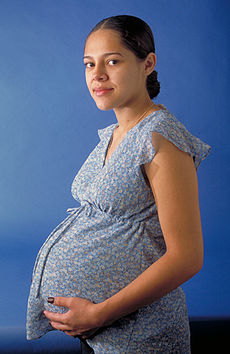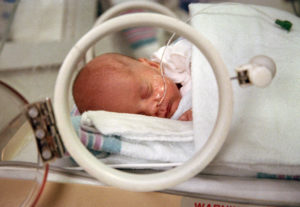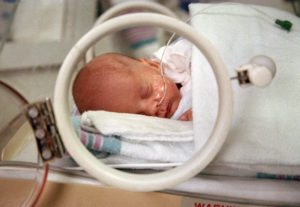Georgia’s preterm birth rate rose in 2016 after years of decrease, a disturbing trend that is mirrored by national data, state officials said Monday.
Preterm birth is when a baby is born too early, before 37 weeks of pregnancy have been completed. It’s also called premature birth.

Babies who survive an early birth often face the risk of lifelong health challenges, such as breathing problems and cerebral palsy.
Georgia’s preterm birth rate climbed to 11.2 percent last year, up from 10.8 percent in 2015, said Dr. Lara Jacobson, director of Health Promotion at the state Department of Public Health. That’s higher than the national preterm birth average of 9.8 percent in 2016, which rose from 9.6 percent the year before, she said.
“There’s no single, simple answer’’ for the preterm increase, Jacobson said. “It’s a very complex interplay of factors.”
Those factors include the health of the pregnant woman and whether she has conditions such as hypertension or diabetes, Jacobson said.
If a woman has had a prior preterm birth, she has a greater chance of a second one.
Intervals between pregnancies also make a difference. Georgia mothers who have less than one year of spacing between delivery and the next pregnancy have a 12.3 percent preterm birth rate, Jacobson said.
Race is a factor as well. In 2015, the national rate of preterm births among African-American women (13%) was about 50 percent higher than the rate of preterm births among white women (9%), the CDC says.

The March of Dimes, which produces a Premature Birth Report Card, said Monday that last year showed “an unfair burden of premature births among specific racial and ethnic groups as well as geographic areas across the state.’’
Danielle Brown, the March of Dimes director of maternal and child health in Georgia, said that “as a community, we must do better to help give every baby a fighting chance.”
Longer distances to birthing hospitals can increase chances for preterm birth. But only 46 of Georgia’s 159 counties have labor and delivery units, with about 75 hospitals in the state routinely delivering babies, according to the Georgia OB/GYN Society. Many hospitals, especially in rural areas, have shuttered their birth units in the past two decades due to financial losses.
“There is a higher preterm birth rate overall in rural counties,’’ Jacobson said.
Preterm birth rates nationally decreased from 2007 to 2014, and CDC research shows that this decline is due, in part, to declines in the number of births to teens and young mothers.
The Georgia decline ended in 2013, and the rate stayed relatively flat until last year’s increase, state data show.
“We’re watching it very closely,’’ Jacobson said. “We’re working very hard to reverse” the increase.
This increase in preterm births in Georgia for 2016 “is certainly concerning, though it appears to be a national trend,’’ said Elise Blasingame, executive director of Healthy Mothers, Healthy Babies Coalition of Georgia. “Without looking at all of the additional data on maternal and infant health outcomes for the year, it is difficult to say which are the leading contributors.”
Georgia also has one of the highest uninsured rates in the nation. That could affect access to prenatal care, which could lead to more childbirth problems. Other risk factors are alcohol consumption, drug use and smoking by pregnant women.
Public Health said Georgia has seen greater use of long-acting reversible contraceptives (LARC), which can help women to better space pregnancies. Georgia Medicaid reimburses hospitals that implant LARCs. And Medicaid, which covers most births in Georgia, has stopped paying for early elective deliveries.

Hospitals also have launched programs to address risk factors during pregnancy, Public Health said.
And the March of Dimes cites the “Centering Pregnancy’’ initiative, a group prenatal program that combines health assessment, education and support.
The March of Dimes supports three Centering sites in Georgia: Upson (County) Regional Medical Center, Southern Crescent Women’s Health and Southwest Public Health District.

